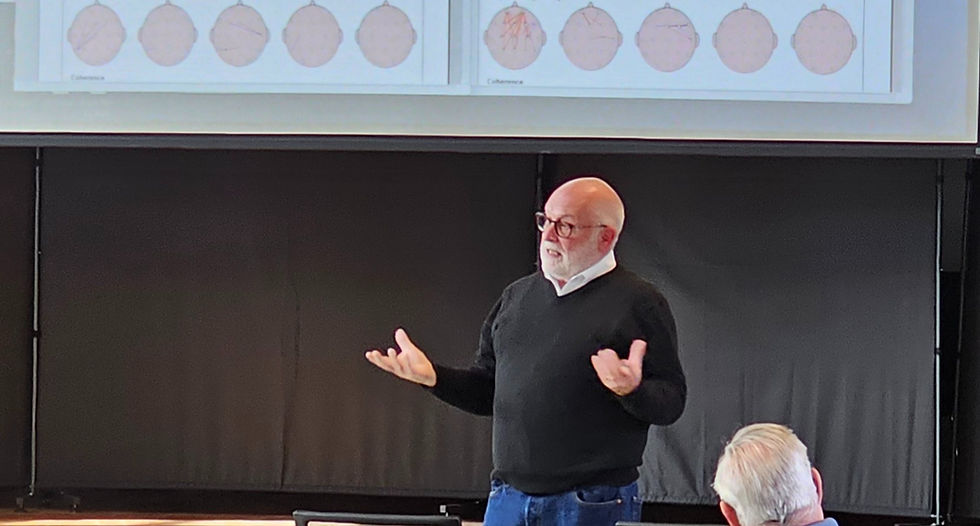Why I Love EMDR, Neurofeedback and Other Ways to Open the Door to Your Other Feelings
- Lisa Ferguson
- Feb 1, 2023
- 2 min read
Updated: Feb 12, 2023
In the beginning of my recovery there was Fear. I had one feeling. I feared everything. I only went to one meeting a week because of my fear of meeting new people, my fear of appearing incompetent, my fear of running into someone I had been rude to when I was drinking and drugging. Most of all, my fear of being wrong and having to apologize.
With 12-step self-examination at my side (it is very helpful to know I can be wrong, especially when it turns out to be hilarious to my friends in 12-step) and CBT resolutions in mind, I set forth. I went to 12-step meetings, and I somehow stayed sober. And I functioned at work. Some of us eat, some of us smoked. I choose eating. I would eat my way through life to keep my feelings at bay.
A close friend of mine changed into a happy person who loved the world. I was stumped and thought, she had upped her meds. She told me she did EMDR and lowered her meds. Her world had changed, and I wanted what she was drinking.
So, I tried it. I made my list (similar to my fourth step list but including childhood resentments). It took three and a half years to get through everything. I am afraid to tell you, it had taken nearly thirty years to talk my way through it. I even uncovered stuff that made my stomach do little flip flops that I had not even noticed before.
I relaxed. Fear was not part of my every minute. Because I faced my fears in seconds and minutes (with EMDR it is hard to ruminate) and allowed my brain to do what it is supposed to do, sort through the mess and, in doing so, heal itself. My behavior changed. Not only was out of fight or flight, but I made room for my other feelings. My repertoire of feelings is now full on a daily basis. Rather than being guided by reaction, I'm in touch with my thoughts and my feelings at the same time. I know that doesn't sound like much, but for someone with PTSD, it is a miracle. If PTSD is a brain function, I wonder if not being bothered by most of life's challenges, but instead, meeting them with careful examination means that that I'm normal.
Now I'll fly alone across the country to meet new people. I apologize right away when I'm in the wrong and it doesn't bother me. Not because I did CBT and DBT therapy and the 12-steps for many years but because I did the brain work. I turned off my flight or fight responses that had built up in resentments. AA talks about them as being the number cause of our relapse. I didn't even know I had resentments that lurked under skin, went through my veins until they were gone.




Comments